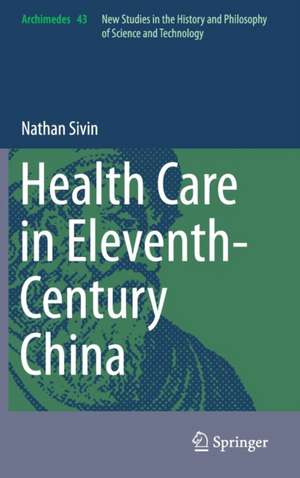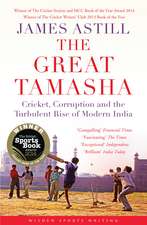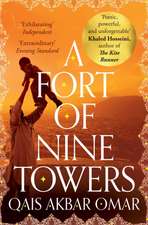Health Care in Eleventh-Century China: Archimedes, cartea 43
Autor Nathan Sivinen Limba Engleză Hardback – 14 sep 2015
| Toate formatele și edițiile | Preț | Express |
|---|---|---|
| Paperback (1) | 565.86 lei 38-44 zile | |
| Springer International Publishing – 22 oct 2016 | 565.86 lei 38-44 zile | |
| Hardback (1) | 909.01 lei 3-5 săpt. | |
| Springer International Publishing – 14 sep 2015 | 909.01 lei 3-5 săpt. |
Din seria Archimedes
- 18%
 Preț: 899.21 lei
Preț: 899.21 lei - 18%
 Preț: 785.55 lei
Preț: 785.55 lei -
 Preț: 382.36 lei
Preț: 382.36 lei - 18%
 Preț: 1833.33 lei
Preț: 1833.33 lei - 15%
 Preț: 643.84 lei
Preț: 643.84 lei - 18%
 Preț: 951.77 lei
Preț: 951.77 lei - 15%
 Preț: 645.79 lei
Preț: 645.79 lei - 15%
 Preț: 644.30 lei
Preț: 644.30 lei - 20%
 Preț: 577.17 lei
Preț: 577.17 lei - 18%
 Preț: 1054.18 lei
Preț: 1054.18 lei - 15%
 Preț: 646.62 lei
Preț: 646.62 lei - 18%
 Preț: 1110.09 lei
Preț: 1110.09 lei - 18%
 Preț: 1211.25 lei
Preț: 1211.25 lei - 18%
 Preț: 730.02 lei
Preț: 730.02 lei - 18%
 Preț: 1546.82 lei
Preț: 1546.82 lei - 18%
 Preț: 891.48 lei
Preț: 891.48 lei - 18%
 Preț: 776.88 lei
Preț: 776.88 lei - 18%
 Preț: 1214.60 lei
Preț: 1214.60 lei - 18%
 Preț: 1113.26 lei
Preț: 1113.26 lei - 18%
 Preț: 777.69 lei
Preț: 777.69 lei - 18%
 Preț: 995.83 lei
Preț: 995.83 lei - 15%
 Preț: 635.47 lei
Preț: 635.47 lei - 24%
 Preț: 1459.25 lei
Preț: 1459.25 lei - 18%
 Preț: 948.47 lei
Preț: 948.47 lei - 18%
 Preț: 1666.97 lei
Preț: 1666.97 lei - 18%
 Preț: 1114.83 lei
Preț: 1114.83 lei - 15%
 Preț: 645.60 lei
Preț: 645.60 lei
Preț: 909.01 lei
Preț vechi: 956.84 lei
-5% Nou
Puncte Express: 1364
Preț estimativ în valută:
173.93€ • 182.09$ • 143.92£
173.93€ • 182.09$ • 143.92£
Carte disponibilă
Livrare economică 15-29 martie
Preluare comenzi: 021 569.72.76
Specificații
ISBN-13: 9783319204260
ISBN-10: 3319204262
Pagini: 223
Ilustrații: XVII, 223 p. 2 illus.
Dimensiuni: 155 x 235 x 20 mm
Greutate: 0.52 kg
Ediția:1st ed. 2015
Editura: Springer International Publishing
Colecția Springer
Seria Archimedes
Locul publicării:Cham, Switzerland
ISBN-10: 3319204262
Pagini: 223
Ilustrații: XVII, 223 p. 2 illus.
Dimensiuni: 155 x 235 x 20 mm
Greutate: 0.52 kg
Ediția:1st ed. 2015
Editura: Springer International Publishing
Colecția Springer
Seria Archimedes
Locul publicării:Cham, Switzerland
Public țintă
ResearchCuprins
Chapter 1: Introduction.- Chapter 2: The Question of Efficacy.- Chapter 3: Classical Medicine.- Chapter 4: Therapy in Popular Religion.- Chapter 5: Therapy in Elite Religions.- Chapter 6: Therapy in the State Religion.- Chapter 7: Conclusions.- Appendix.
Recenzii
“Sivin’s synthesis successfully shows how in eleventh-century China the therapeutic practices of elite physicians, officials, monks, priests or popular ritual masters, given their respective backgrounds, all converged towards a similar goal: finding an efficacious way to bring order to what was perceived as a disorder of the body, of society or of the spiritual world.” (Matthias Hayek, Medical History, Vol. 60 (4), October, 2016)
“In his book, Sivin integrates his research with the study of religious history, especially that of Daoism, and begins by examining how some of the most common religions treated diseases at that time. … Based on existing research on medicine and religions in the Song dynasty, this book represents health care in eleventh-century China in a whole new light, with its rich knowledge of medical anthropology, historyof religion, Chinese medicine and Western medical history.” (Ka-wai Fan, Metascience, Vol. 25, 2016)
“In his book, Sivin integrates his research with the study of religious history, especially that of Daoism, and begins by examining how some of the most common religions treated diseases at that time. … Based on existing research on medicine and religions in the Song dynasty, this book represents health care in eleventh-century China in a whole new light, with its rich knowledge of medical anthropology, historyof religion, Chinese medicine and Western medical history.” (Ka-wai Fan, Metascience, Vol. 25, 2016)
Textul de pe ultima copertă
By examining all the prevalent varieties of therapy from self-care to religious ritual, this book explores health care practices in China, before modern times. In ancient China most people were unable to afford a doctor, even in the unlikely case that one lived near their village and was willing to treat peasants. What did they do when their children got sick?
The answer is to be found in this book, which goes far beyond the history of medicine. The author uses methods of medical anthropology to explain the curative roles of popular religion, Daoism, Buddhism, and the therapeutic rites performed by imperial officials. Readers will discover the steady interaction of religious healing and classical medicine in this culture.
This highly readable book builds on over forty years of study and analysis of early liturgical and medical writings, and a wide variety of other sources. Its focus on the eleventh century throws new light on a period of rapid transition in many aspects of therapy, and it will appeal to scholars and general readers alike.
The answer is to be found in this book, which goes far beyond the history of medicine. The author uses methods of medical anthropology to explain the curative roles of popular religion, Daoism, Buddhism, and the therapeutic rites performed by imperial officials. Readers will discover the steady interaction of religious healing and classical medicine in this culture.
This highly readable book builds on over forty years of study and analysis of early liturgical and medical writings, and a wide variety of other sources. Its focus on the eleventh century throws new light on a period of rapid transition in many aspects of therapy, and it will appeal to scholars and general readers alike.
Caracteristici
Explores the relations of Chinese medicine and religious ritual Examines the whole spectrum of therapeutic ritual in China Explains curative roles of Daoism, Buddhism and therapeutic rites Makes aspects of curative ritual accessible to non-specialists





